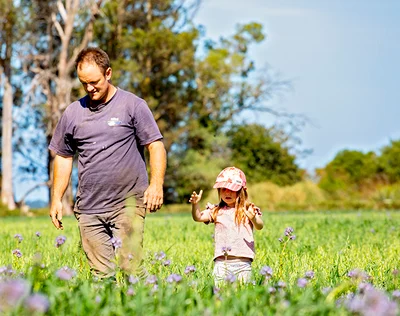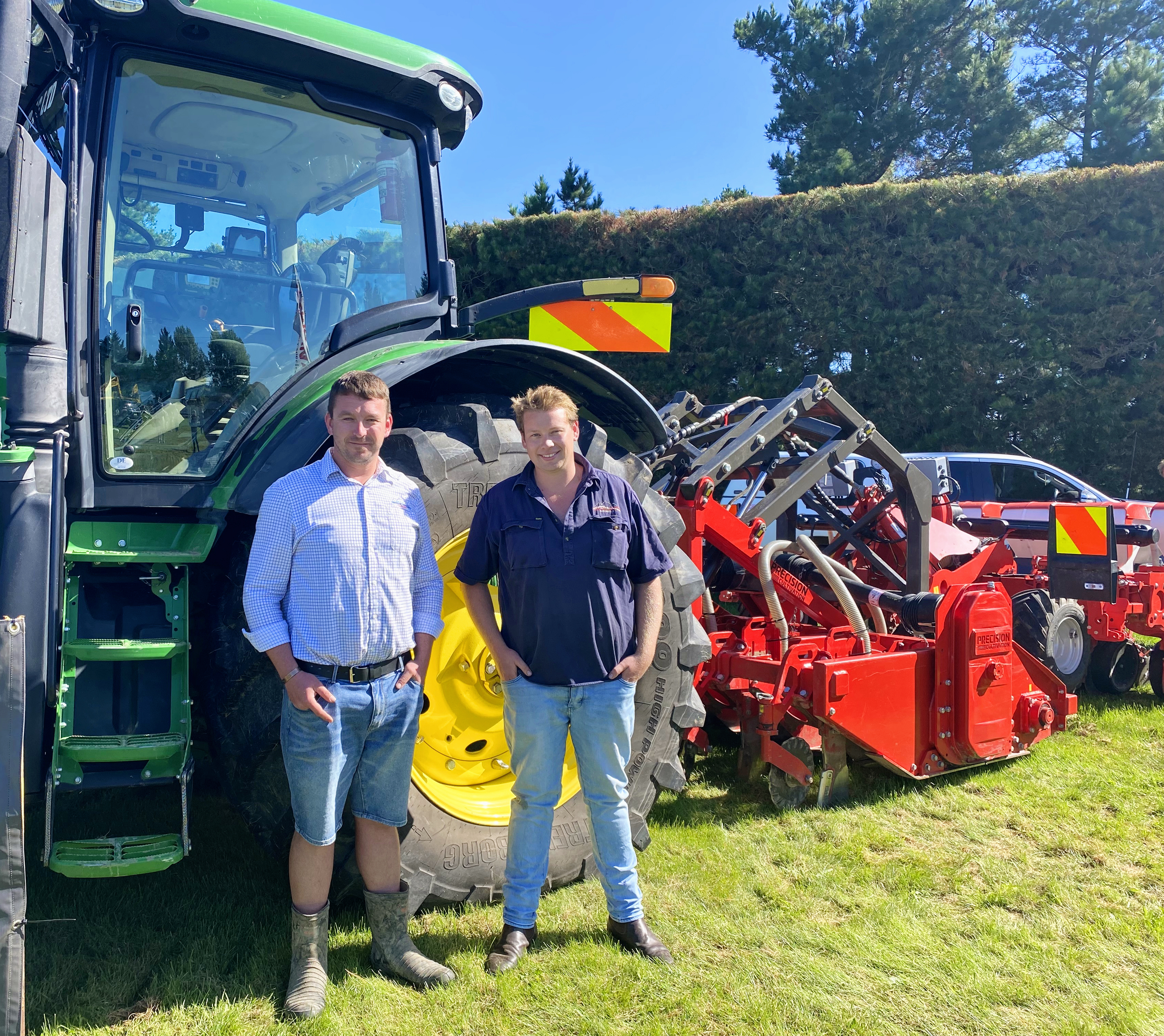Strip tillage the economic option

Eiffelton- based farmer, Will Mackenzie, moved to strip tillage six years ago after looking for a cultivation method that reduced both his fuel bill and time in the tractor.
With strip tillage consolidating the four or five passes that conventional methods require down to a single pass with no reduction in yield, it looked like the obvious answer.
"I get sick of tractor driving in spring, so I started to look at options around strip tillage, and I ended up buying a Mzuri machine that was in mint condition from another farmer.
The immediate benefit was how much quicker it was because we weren't cultivating first. Suddenly all our spring crops were in around three or four days, and the fuel saving has been massive."
Strip tillage, the relatively new kid on the block, has been gaining popularity in Europe as a mid-way point between no-till and conventional methods.
With a wide range of machines now available on the New Zealand market, Kiwi farmers are reaping the benefits too.
As well as being more economical, strip tilling reduces soil erosion and run-off, while uncultivated bands provide protection to seedlings from wind damage.
Soil compaction is minimised, and less disturbance reduces weeds and improves moisture retention, a welcome benefit for dry-land farmers.
"Yield-wise, we're actually doing better with our brassicas," Mackenzie said. "Wheat yields are down a bit, but I think we're making up for that in grain weight."
The cultivation method also has an advantage for farmers looking to improve soil health or incorporate regenerative farming practices.
"We were already going down the path of incorporating straw and green waste compost and trying to look after the ground.
Since we've gone for this system, we've noticed the soil is more friable. When we dig a hole, we find about thirty worms, when we used to see around ten, so worm numbers are improving," Mackenzie said.
"I've been doing organic matter soil testing, and it's early days, but we are definitely not depleting the soil. If anything, we are slowly increasing our organic and carbon levels.
I need a couple more years to see if that's accurate, but I think because we're leaving all the root mass and cutting through it at a different angle for next year's crop, it's improving organic matter."
Mayfield- based contracting business Canterbury Striptill Ltd, run by farmer and contractor Danny Walker uses a band tillage machine manufactured in New Zealand by Palmerston North-based company Precision Cultivation.
"It's a relatively new way of cultivating," Walker said. "This is my third season. Last year I did just shy of 400 hectares, and this year it's been around 500."
Because strip tillage does not compact the soil like conventional methods, pugging is reduced for farmers running cattle on paddocks over winter. "With the wet winters we have been having, it means the cows can get back on the ground a lot faster,” Walker said “One farmer I spoke to did half strip till and half conventional last year, and he had his cows back on the strip tilled paddock around a week sooner than the conventional one."

Hawarden-based contracting business Waitohi Ag Ltd have also recently added a Precision Cultivation machine to their arsenal, which has been welcomed by the contractor's client base.
"I am amazed at the uptake, to be honest," Waitohi Ag general manager and share-holder Ben Clarke said. "There's more pressure on farmers at the moment to utilise their paddocks as much as possible. With strip tilling, some guys are getting the use of the paddock an extra two to three weeks in the spring because we don't have to cultivate the paddock leading up to planting. We just go straight in and plant."
For Hawarden farmer and co-founder of Waitohi Ag, Mark Zino, the reduction in chemical use was a huge draw-card.
“I've been looking at strip tilling for a long time. After seeing the yields and chemical reduction friends in North Island have had, when the opportunity came up, we decided to give it a go," Zino said. "We are getting a bit blasé with the use of chemicals in agriculture now. There's far too much of it going on, and the cost of growing these crops is just going through the roof. So, I thought, what can we do to minimise that chemical input? I started looking more into strip tilling because you're disturbing less of the soil. And basically, the more soil we disturb, the more weeds grow. So, as long as you have a really good spray-out program before you drill, you can reduce your chemical input going forward."
- By Claire Inkson

